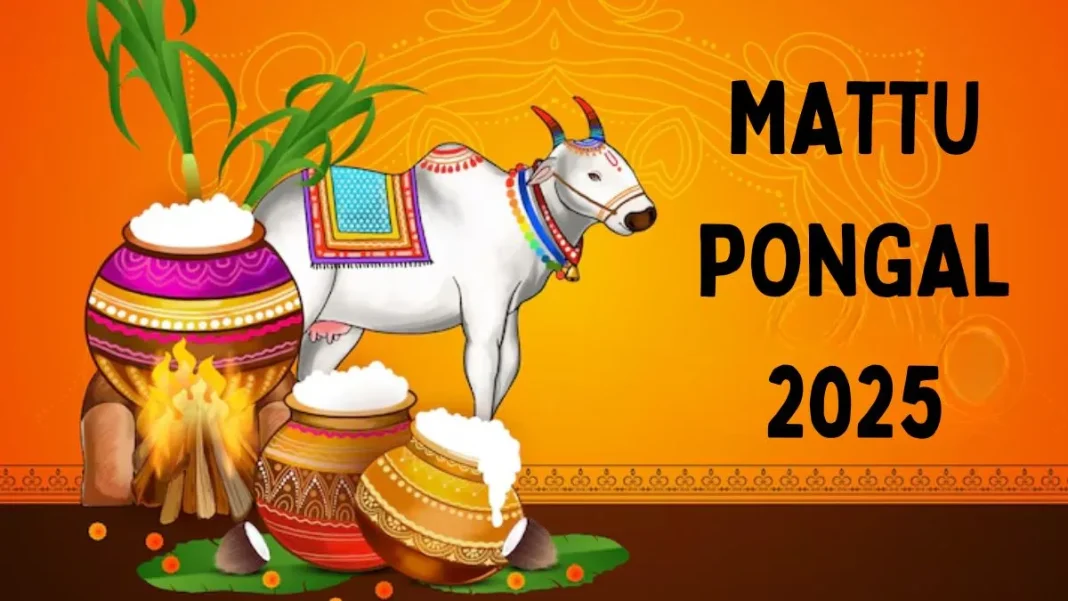On the second day of the Thai month, Tamil Nadu celebrates Mattu Pongal, the third day of the Pongal festivities. Cattle, especially bulls, are honored on this day for their essential contribution to agriculture. On this day, people from all walks of life gather to celebrate the fresh harvest and welcome the new season. The term “mattu” in Tamil means “bull.” Regardless of caste, creed, or other distinctions, Mattu Pongal is a time for solidarity. The event, which highlights the value of cattle in agricultural and rural life, is widely observed not only in Tamil Nadu but also in nearby states like Karnataka and Andhra Pradesh.
See below for the third day of Pongal celebrations’ date, timing, significance, and customs:
Mattu Pongal in 2025 Date: Wednesday, January 15, 2025
Sunrise time: 07:14 A.M.
Sunset time: 5:57 p.m.
Mattu Pongal: Importance in 2025 –
With “mattu” meaning “bull” and “pongal” meaning “prosperity,” Mattu Pongal is a festival honoring livestock. In recognition of the critical role that cattle play in agriculture, this celebration celebrates the start of the paddy harvest. Hindu mythology connects Mattu Pongal to the tale of Lord Shiva and his bull, Nandi. The traditional bull-taming sport known as “Jallikattu” or “Manji Virattu” is also held on this day.
A sincere way to show appreciation for cattle, especially cows and bulls, is to celebrate Mattu Pongal. These animals are highly valued in Indian civilization since bulls help farmers till the ground for farming, while cows give milk to people. By honoring cattle, people show their gratitude for their contributions and highlight their reliance on these animals for their livelihood.
Rituals for Mattu Pongal 2025
Pongal is a time when people clean their houses completely and adorn the front yard with colorful kolams. The kolam designs, which include images of rice, the Sun God, and cattle, including bulls, change daily.
Cattle owners show their animals love on Mattu Pongal by bathing them, painting their horns, and decorating them with colorful beads, flower garlands, and ornamental metal caps. Additionally, they give prayers to keep the cows safe and sprinkle them with saffron water made from mango leaves. Worshiping Lord Krishna and Lord Indra, the owners ask for their blessings so that their livestock can thrive and prosper.
‘Sakkar Pongal’ is a special dish made of moong dal, cooked rice, dry fruits, and jaggery that is prepared on Mattu Pongal. Known as “cattle prasad,” this delectable delicacy is initially served to the cows before being shared with the populace. During the Pongal celebrations, Tamils also serve a variety of rice delicacies to their deities, Lord Shiva, Goddess Parvati, and Lord Ganesha.
‘Manji Virattu’ or ‘Jallikattu’ is a rural sport that is an essential component of Mattu Pongal festivities. The village’s young men take part in this pastime with great enthusiasm, pursuing angry bulls in an attempt to seize the cash fastened to their horns. This exciting celebration often takes place on the evening of either Kaanum Pongal or Mattu Pongal.



